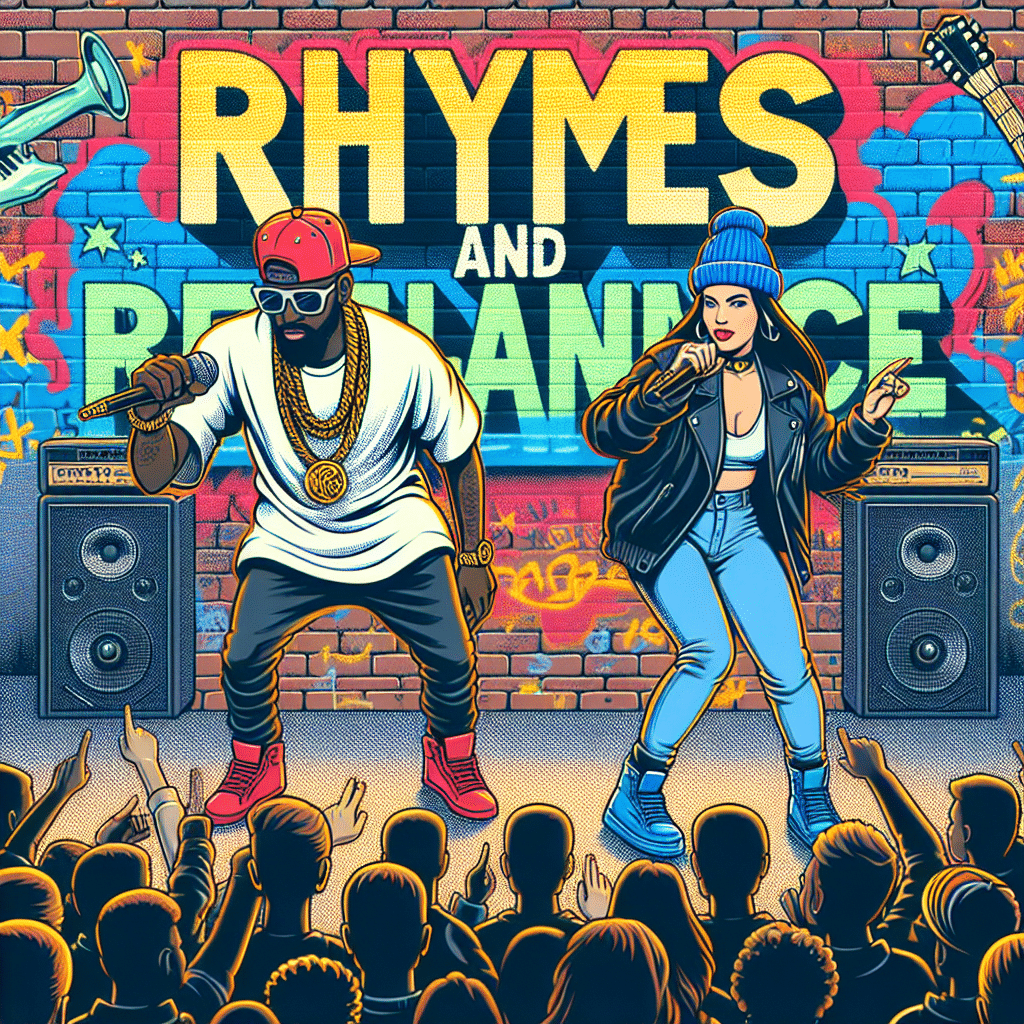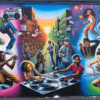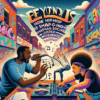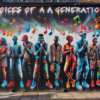Rhymes and Relevance: Exploring the Lives of Today's Top Hip Hop Icons

Hip hop has evolved into one of the most influential musical genres in the world, transcending boundaries of culture, language, and societal norms. At the forefront of this movement are the hip hop icons of today, who use their art to express their realities, challenge societal norms, and inspire millions. This article will explore the artistry, impact, and relevance of today’s top hip hop artists, shedding light on their lives, influences, and the power of their lyrics.
The Art of Storytelling
Origins of Hip Hop
Hip hop originated in the late 1970s in the South Bronx, New York City, as a response to the struggles faced by African American and Latino communities. It merged various elements including rapping (MCing), DJing, graffiti art, and breakdancing. The genre was birthed from the necessity to voice experiences of hardship, systemic oppression, and cultural expression.
The Role of Rhymes
See Also: Creating the Perfect Vibe: A Deep Dive into Hip Hop Beat Production
Creating the Perfect Vibe: A Deep Dive into Hip Hop Beat ProductionRhymes in hip hop serve not merely as a stylistic choice but as a fundamental aspect of storytelling. Through intricate wordplay, internal rhymes, and multi-syllabic structures, artists paint vivid pictures of their lives and environments. This art of crafting rhymes has evolved into a powerful tool for social commentary, allowing artists to articulate political issues and personal narratives through creative lyricism.
The Icons of Today
Kendrick Lamar: The Poet
Kendrick Lamar has emerged as one of the most significant voices in contemporary hip hop. Known for his profound lyricism and storytelling ability, Kendrick’s albums, particularly "To Pimp a Butterfly" and "DAMN.," have tackled themes of race, identity, and resilience. His song "Alright," in particular, became an anthem for the Black Lives Matter movement, encapsulating hope in the face of adversity.
J. Cole: The Reflective Truth-teller
Another prominent figure in today’s hip hop landscape is J. Cole, who weaves tales of personal growth, systemic issues, and the complexities of modern life. With introspective lyrics in songs like "Middle Child" and "Love Yourz," Cole connects deeply with his audience, encouraging self-reflection and social awareness. His Dreamville label has also fostered rising talent, furthering his impact on the culture.
See Also: From Struggle to Success: How Hip Hop Lyrics Reflect Real-Life Experiences
From Struggle to Success: How Hip Hop Lyrics Reflect Real-Life ExperiencesCardi B: The Empowering Force
Cardi B has made waves not just for her infectious beats but also for her unapologetic persona and empowerment of marginalized voices. Songs like "Bodak Yellow" and "I Like It" reflect her journey from a Bronx stripper to a chart-topping artist. Cardi advocates for female empowerment within the industry, often using her platform to speak on issues like gender equality and social justice.
Drake: The Emotional Connector
Drake, characterized by his emotional depth and genre-blending music, has reshaped the hip hop scene for a new generation. Tracks such as "God's Plan" and "In My Feelings" showcase his ability to connect personal experiences with relatable themes of love and success. His constant reinvention and ability to stay culturally relevant have secured his status as a hip hop titan.
See Also:
 The Evolution of Hip Hop: How Today's Artists are Shaping the Genre
The Evolution of Hip Hop: How Today's Artists are Shaping the GenreAmplifying Voices
In the digital age, social media has revolutionized the way hip hop artists connect with their audience. Platforms like Instagram, Twitter, and TikTok allow for direct interaction between fans and artists, fostering a sense of community and authenticity. For instance, artists can share their daily lives, thoughts, and behind-the-scenes glimpses, creating a more personal connection with their audience.
Marketing and Promotion
Social media also serves as a powerful marketing tool. Artists can promote their music, engage in viral challenges, and utilize platforms to launch their careers. This democratization of music has enabled new voices to emerge, with lesser-known artists gaining recognition outside conventional media avenues.
Addressing Societal Issues
See Also: Beyond Beats: The Cultural Impact of Top Hip Hop Artists
Beyond Beats: The Cultural Impact of Top Hip Hop ArtistsToday's hip hop icons often tackle pressing societal issues through their lyrics. Topics such as systemic racism, police brutality, mental health, and economic disparity are prevalent in their work. By addressing these themes, artists not only raise awareness but also foster conversations among their audience, urging listeners to reflect on and engage with these issues.
The Role of Activism
Many artists go beyond their music to become activists in their communities. From Kendrick Lamar and J. Cole’s philanthropic efforts to Cardi B’s vocal stances on police reform, today’s hip hop icons leverage their fame for social good. This activism is often rooted in their personal experiences, making their messages even more impactful.
The Global Influence of Hip Hop
Cultural Exchange
Hip hop has transcended its roots to become a global phenomenon. Artists from various backgrounds, including K-pop stars and Afrobeat musicians, have embraced the genre, fusing it with their own cultural elements. This cross-pollination has enriched hip hop, leading to a more diverse range of sounds and expressions.
See Also: Beyond Bars: How Hip-Hop Is Shaping Social Justice Movements
Beyond Bars: How Hip-Hop Is Shaping Social Justice MovementsA Unifying Language
Hip hop serves as a unifying language that transcends cultural boundaries. It speaks to universal themes of struggle, resilience, love, and social justice, appealing to a wide audience. This ability to resonate with individuals from different backgrounds solidifies hip hop's place as a powerful vehicle for change and dialogue.
Conclusion
In conclusion, the lives and careers of today’s top hip hop icons exemplify the genre’s profound impact on society and culture. Through intricate rhymes and poignant storytelling, artists like Kendrick Lamar, J. Cole, Cardi B, and Drake not only entertain but also educate and inspire. By addressing societal issues, they ensure that their music remains relevant and resonant. As hip hop continues to evolve, its significance as a medium for change will undoubtedly persist, serving as a voice for the voiceless and a beacon of hope for future generations.
FAQs
See Also: Voices of a Generation: The Top Hip Hop Artists Making Waves in 2023
Voices of a Generation: The Top Hip Hop Artists Making Waves in 20231. What makes hip hop different from other music genres?
Hip hop is characterized by its rhythmic vocal style (rapping), beats, and cultural elements such as DJing, graffiti art, and breakdancing. It often addresses social issues, making it a powerful medium for storytelling and social commentary.
2. How do today's hip hop artists use their platform for social change?
Many artists leverage their platforms to address important societal issues, raise awareness, and participate in activism. They use their music, social media, and public appearances to advocate for change and inspire their audiences.
3. What role does social media play in the careers of hip hop artists?
Social media allows artists to promote their music, connect with fans, and share their lives in real-time. It serves as a powerful marketing tool and creates a sense of community between artists and their audiences.
See Also: Rhyme and Reason: Analyzing the Evolution of Hip Hop Lyricism
Rhyme and Reason: Analyzing the Evolution of Hip Hop Lyricism4. How has hip hop evolved over the years?
Hip hop has evolved from its origins in the late 1970s to include various styles, sounds, and cultural influences. It has expanded globally, with artists from different backgrounds contributing to its diversity and richness.
5. Why is lyricism important in hip hop?
Lyricism is central to hip hop as it encapsulates storytelling, emotion, and social commentary. It allows artists to convey complex themes and connect deeply with their audience, making it an essential aspect of the genre.
If you want to know other articles similar to Rhymes and Relevance: Exploring the Lives of Today's Top Hip Hop Icons you can visit the category Hip Hop.
